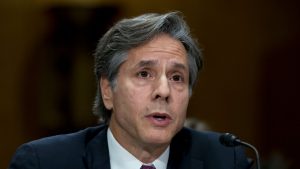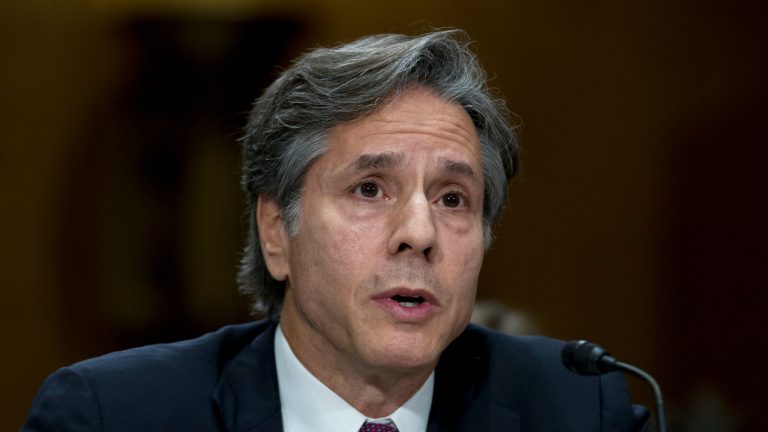
The United States Secretary of State, Mr. Antony Blinken, has called on governments around the world to uphold media freedom and the safety of journalists both online and offline, arguing that “an independent and empowered press is a cornerstone for healthy democracies.”
Speaking on “Building A More Resilient Information Environment” in Seoul, South Korea, on March 18, 2024 at the Third Summit for Democracy, Secretary Blinken stressed the importance of the media and journalism, saying: “We all know that a world in which reliable information is readily accessible is pretty much foundational to every issue, in every country. It empowers us to understand and engage with the world around us. To make decisions that shape our lives, that shape our communities, that shape our countries.”
He noted that there was “no shortage of obstacles” to meeting the objective of delivering a safer, healthier, more prosperous, and more inclusive future for people around the world and identified some of the challenges as lingering barriers to political participation, corruption and economic growth that is not broadly shared.
But Mr. Blinken explained that he wanted to focus “on one longstanding problem that’s become increasingly complicated and increasingly consequential” and pointed to the challenge of disinformation, describing it as encompassing material that is deliberately meant to deceive and divide, as well as other forms of false and misleading content.
He said: “If you go back the 30 or so years that I’ve been in government, the most profound change has been in the information space. When I started out a little over 30 years ago, pretty much everyone did the same thing: They opened the door of their apartment or their home in the morning and picked up a hard copy of a newspaper, and there were only a few newspapers that everyone tended to rely on. And then, if you had a television in your office, which some people did but not everyone did, in the United States, you’d turn it on at 6:30 at night or 7:00 at night and you’d get one of our three broadcast networks – ABC, CBS, NBC – for the evening news. And those were the foundational sources of information that pretty much everyone relied on.”
Mr. Blinken contrasted that situation with the present day realities, saying “Now, to state the obvious, we live in a world where we seem to be intravenously connected to information, and we’re getting new inputs every millisecond. The use of technology, particularly when it comes to digital technologies – social media, and now artificial intelligence – they’re dramatically accelerating what had already been an incredibly fast pace of change. But that accelerant has also created an accelerant for disinformation, fueling polarization, adding to the general sense of confusion that people have about the world around them.”
He insisted that although countering misleading information is essential, it is not sufficient, adding that in addition to tackling falsehoods and distortions in the immediate term, the world has to invest in making people more resilient to such falsehoods and distortions in the long term.
Mr. Blinken said: “We need governments to uphold media freedom and the safety of journalists on- and offline because an independent and empowered press is a cornerstone for healthy democracies. We need to enhance open government and expand access to information – how a legislator voted, who received a government contract, how economic data like GDP numbers are compiled – so that journalists and citizens alike can hold their leaders accountable.”
He also emphasized the need to ensure that media regulators are independent and serve the public interest, rather than pressuring outlets to advance propaganda and for governments to allocate their advertising dollars equitably, and transparently rather than using those resources to promote or punish a given outlet.
According to him, “We need greater transparency into who owns media companies, who owns the distribution networks – so that political or foreign entities can’t purchase a news organization and restrict or advance certain views without the public knowing who’s behind it.”
Mr. Blinken called for investments in civic and media literacy to empower citizens to distinguish fact from fiction, especially with the emergence of new technologies such as generative Artificial Intelligence (AI) that can fool even the most sophisticated news consumers.
It is by taking such steps, he said, that those peddling disinformation will find it harder to operate in the shadows and citizens will have greater access to quality information and be better equipped to assess the validity of the content that they encounter.
In his view, “Journalism helps get quality information out into the world. But we also have to do our best to make sure that readers, viewers, consumers, listeners – the ones receiving the content – can sort the wheat from the chaff.”
Mr. Blinken identified the private sector as a set of stakeholders that has “an outsized role to play in building a healthier information ecosystem”, saying the United States believes that the private sector can and must do more to address disinformation.
He said: “Our willingness to acknowledge and to address our own shortcomings – not sweep them under the rug, not pretend they don’t exist – that’s what makes democracies different, and that’s ultimately what makes democracies stronger.”
Mr. Blinken reminded his audience that “accurate information, fundamentally, is a public good”, emphasizing that it will take the involvement of everyone and of the citizens of all countries “to build a more open and more resilient environment for information, and continue to deliver a better future for our people and people around the world.”





